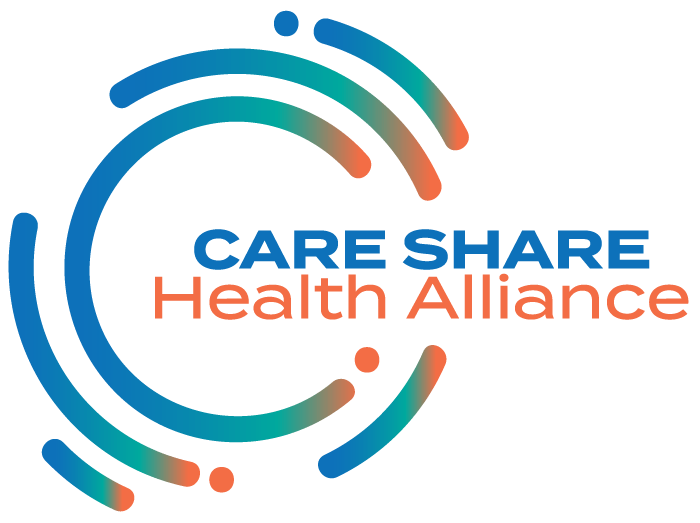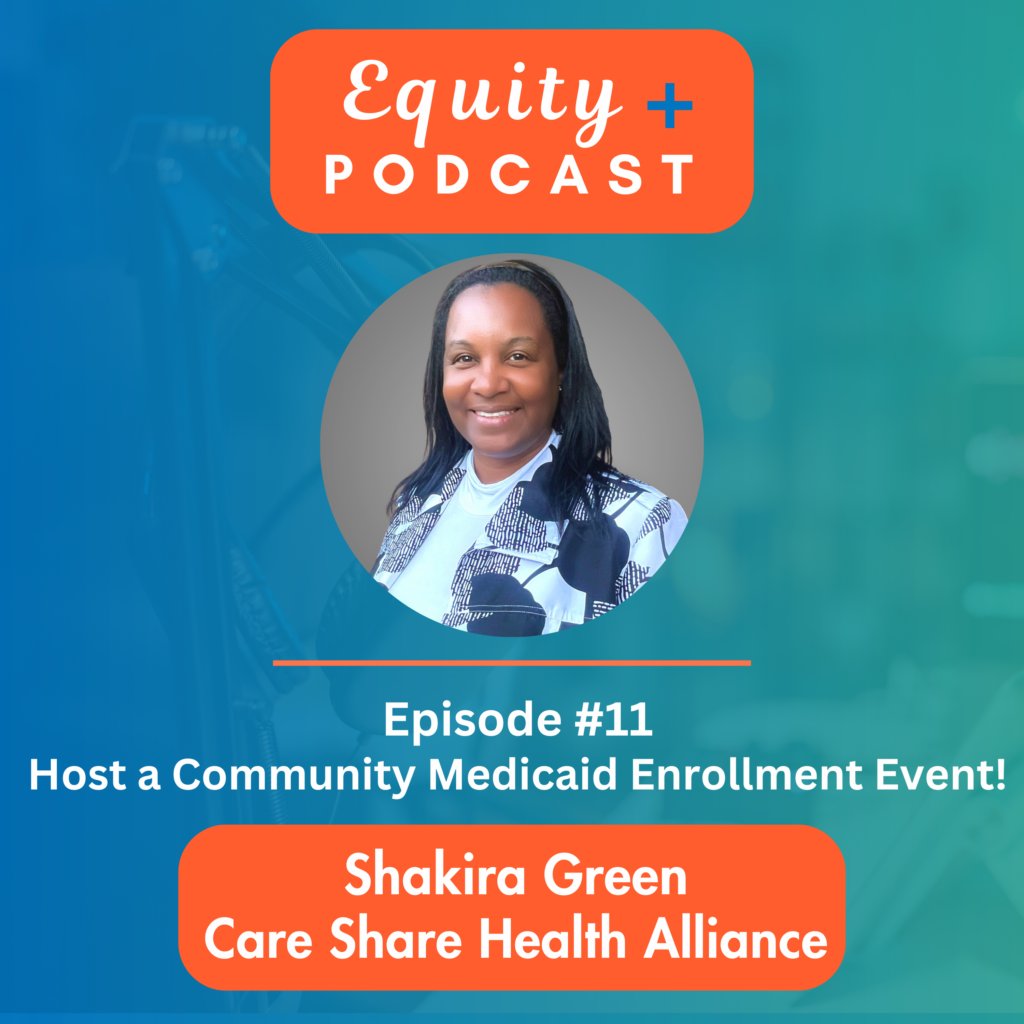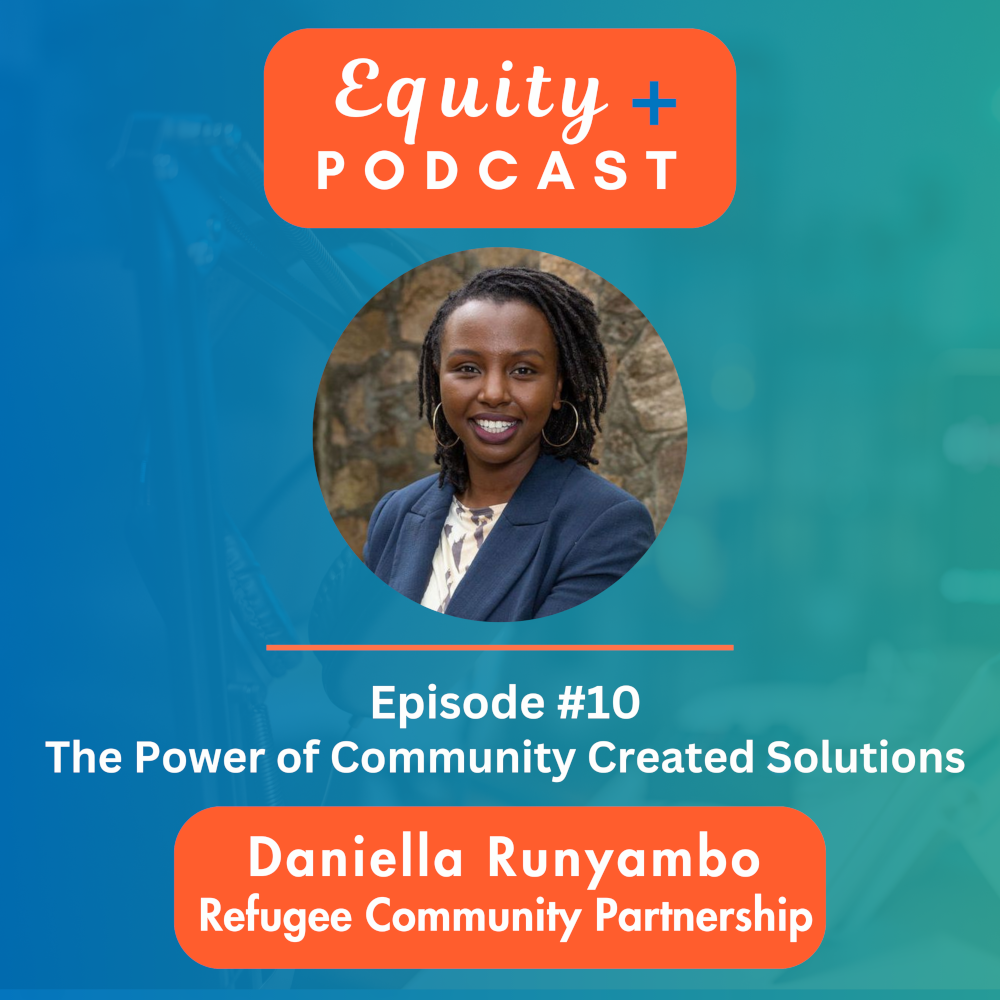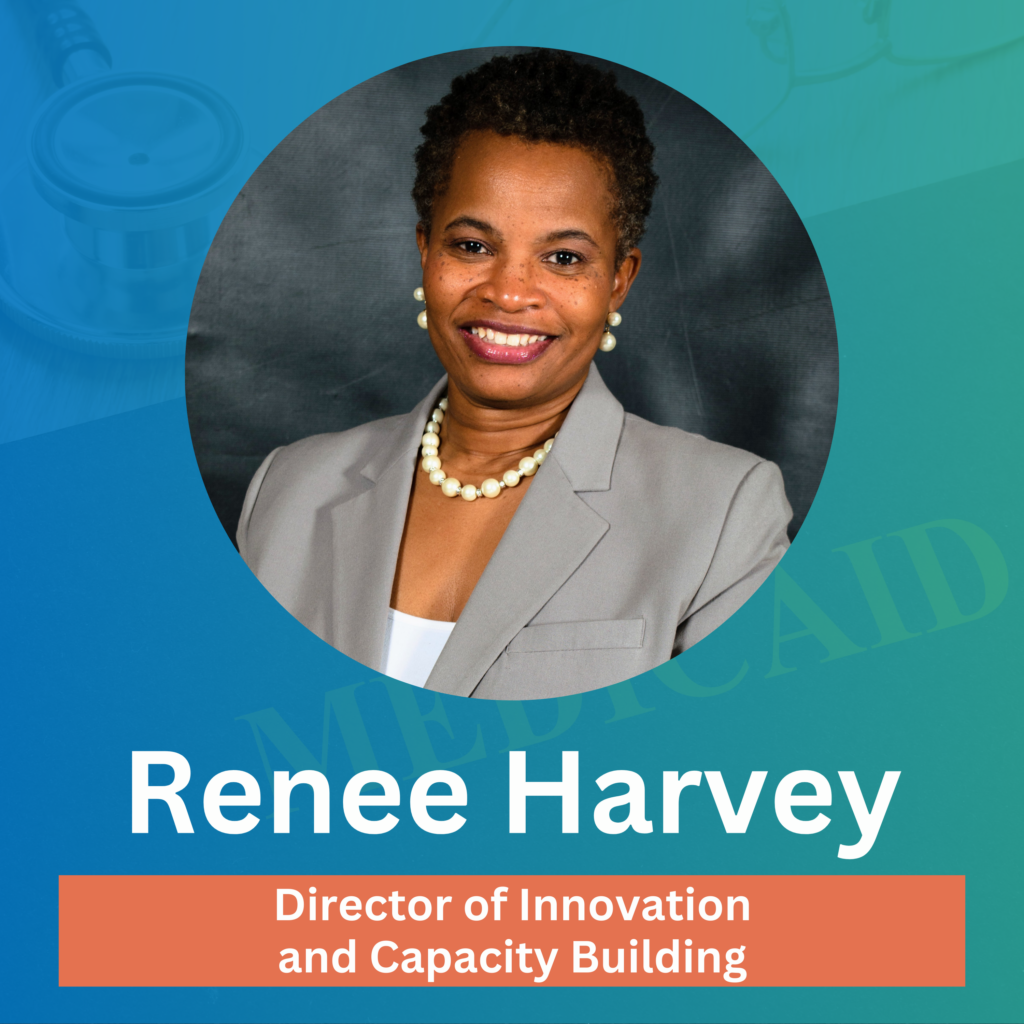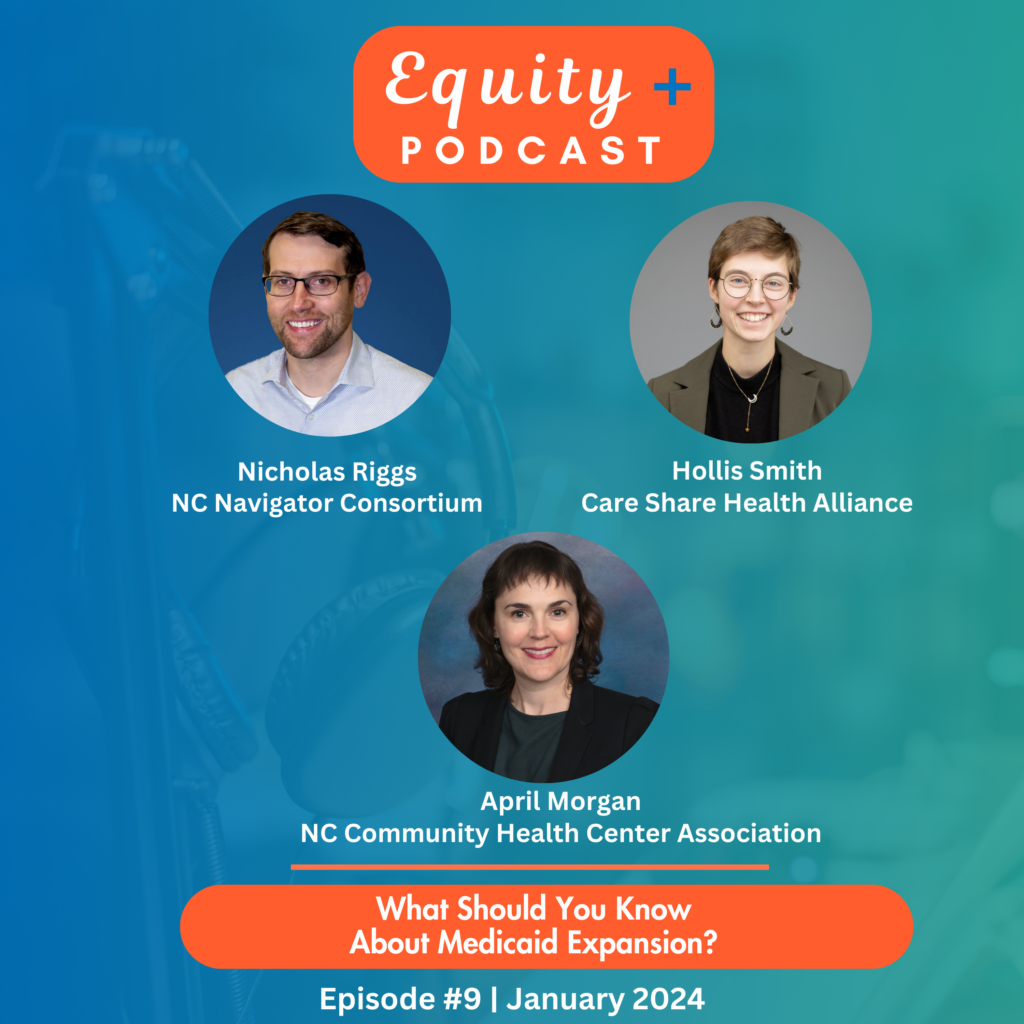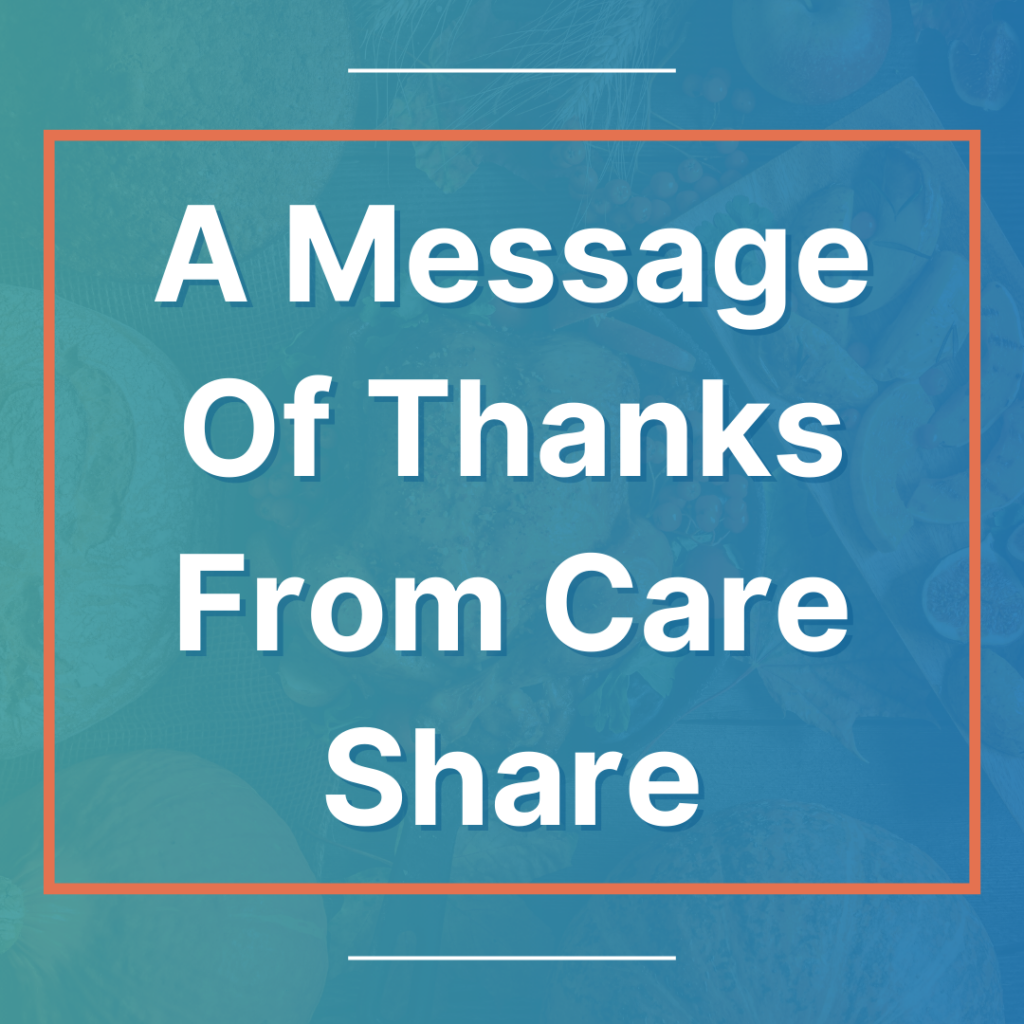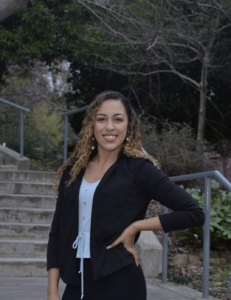
Yesenia Cuello may only be 30 years old, but she has a lifetime of experience to inform her work as Executive Director of NC FIELD, a non-profit working with farmworker youth, families, and H-2A guest workers by utilizing grassroots organizing principles to teach leadership, promote education, health and safety, and facilitate access to opportunities, including internships, certifications, and higher education.
Cuello was born in California; her mother is originally from Mexico and her father the Dominican Republic. When she was just 5 years old, her mother decided to move Cuello and her siblings to North Carolina, hoping to provide a more peaceful environment for them to grow up in. They eventually settled in the small town of Pink Hill in Lenoir county.
“I’m pretty sure that making the transition from California to rural Eastern North Carolina was like from one country to another,” Cuello says about her mother’s experience.
Her father had stayed in California, so Cuello remembers her mother working long hours to support her daughters. The type of work that was available for her – an undocumented immigrant who spoke little English at the time – was in agriculture, specifically tobacco, a labor-intensive crop that poses significant risks to the workers who harvest and process it.
Cuello says that growing up watching her mother leave early in the morning for work and coming back late in the evening made her and her siblings understand the sacrifices she was making for them. So, when Cuello was around 14 years old, she and her 12 and 13-year-old sisters decided they wanted to help their mother out.
“They would call us “las chicas poderosas” even back in the day,” Cuello recalls the nickname given to the three of them (which is the Spanish title for Power Puff Girls.) Like their cartoon heroes, “They said that whenever we got together, there was little that we couldn’t accomplish.”
That summer, Cuello and her sisters told their mother they were coming to work with her in the field. They wanted to help pay the bills, and maybe earn some spending money of their own to buy new school supplies. Their mother agreed to take them, which might come as a surprise given the difficult nature of working with tobacco.
“Oftentimes we do receive that question, ‘who would let their child go work in such a dangerous industry?’” says Cuello, “My mom said she looked at us and she was like, ‘these girls, they’ve just never worked a day in their lives. They don’t know what they’re asking, so I’m going to let them come with me one day. They’re going to be out there the entire time with me, and they’re going to see how hard it is, and they’re never going to want to come back.”
On what their mother had planned to be their one day in the field, Cuello and her sisters woke up very early in the morning to get dressed like any North Carolina teenager would during the summer: in t-shirts, shorts, and flip-fops.
“We were out there like we were going to a beach,” Cuello recalls, “My mom took one look at us walking out of the room we shared, one behind the other, and said, ‘I don’t know where you think you’re going.’”
“She sent us right back in. She said socks. She said tennis shoes. The most rundown jeans you have. One of those long sleeve thin plaid shirts. Definitely a hat. And we were like, it’s so hot outside!”
But Cuello’s mother had the right idea. Unbeknownst to her daughters, two of the top dangers of fieldwork are chemical exposure from pesticides and heat stress. Working with tobacco adds the extra risk of Green Tobacco Sickness – also known as “nicotine poisoning” – which can cause nausea and vomiting severe enough to require hospitalization. It also puts workers at a greater risk for heat stroke, which is the leading cause of work-related deaths among farmworkers.
Covering up the way Cuello’s mother instructed her daughters can help reduce the risk of these dangers by providing a barrier between the skin and hazardous chemicals or nicotine.
When Cuello got to the work site, she says no one asked about her or her sisters’ ages. “The gentleman just asked if we had ever done farm work before, and we said yes, even though none of us had really ever worked before. ”
She soon realized how difficult the work she had signed up for was. “For the first couple weeks I dreamed of tobacco,” she recalls.
She would work in long rows of tobacco where she couldn’t see the beginning or the end. Sometimes Cuello, who is 5’10”, would work with plants taller than herself. To keep an eye on one another, she, her sisters, and her mother would call out to each other or sing songs to keep themselves entertained. Whoever finished first would go back to help the others still working to make sure they all left the field at the same place. Usually, their mother finished first and would go back to help her daughters keep up.
“We knew she was watching out for us, but we also thought: who is watching out for her?” Was part of Cuello’s motivation to continue with field work years after the “one day” her mother had expected.
At the age of 17, while she was still working in tobacco during the summer, she became one of the founding members of NC FIELD’s Poder Juvenil Campesino (Rural Youth Power) group for children of farmworkers and youth working in the fields. It helped teach her skills for public speaking, the importance of advocacy, and provided health and safety education. In fact, joining the PJC was the first time Cuello learned about the danger of working with pesticides.
While in the youth group, Cuello also worked on a study with Wake Forest examining Migrant Farmworker Housing.
“The goal was to be able to collect data as to how farmworker housing was having a direct impact on farmworkers’ health.” She explains. During the study she learned more about the structure of farmwork in the US, such as workers who come on H-2A visas and how the migrant stream works. And, through hearing farmworker stories, about the lack of transparency in the industry.
“The youth group played such a huge role in my life,” says Cuello, “ After a few years in the youth group, I’d worked my way to the president.”
From there, she joined NC FIELD’s Board of Directors, working as the public relations chair for a couple of years before transitioning to hired staff as Program Manager, which included managing the PJC. After three years as Program Manager, she became NC FIELD’s Executive Director.
“It was a decade’s worth of transition,” she says, “But every step of it led me to where I am today.”
Some of the work Cuello has been part of has had major impacts on farmworkers all across the country. Through NC FIELD , Cuello worked with Human Rights Watch on a study that informed how the EPA revised Worker Protection Standards in 2015 – the first time since they had been created. The standards were updated to better protect farmworkers and their families from pesticide exposure by increasing the frequency of mandated safety education, which must be provided in the language the worker speaks. The advocacy also resulted in the first-ever minimum age for pesticide handlers in US agriculture.
“The fact that we were able to be a part of that, and realize that this is the kind of positive change that we can make encouraged us to continue this movement in the right direction,” Cuello recalls.
Like most organizations, NC FIELD had its work cut out for them during the COVID-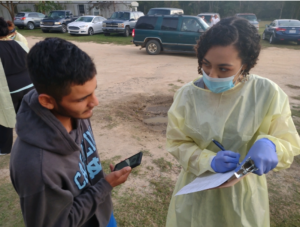 19 pandemic, which in North Carolina began while the farmworker community was still feeling the effects of Hurricane Florence.
19 pandemic, which in North Carolina began while the farmworker community was still feeling the effects of Hurricane Florence.
“In rural areas, we lack a lot of infrastructure, so a lot of the roads were damaged,” says Cuello, “As if transportation wasn’t already hard, during the hurricane we had to find different ways to get to the families that weren’t able to get out of their homes.”
There was another serious concern for some farmworker families beyond the difficulty of getting out of their homes after the hurricane. Cuello describes walking into one home and, “Seeing a mother who was scared to leave her house because we had a situation where somebody documented that there was an ICE vehicle parked outside of Walmart. So we were running into situations where families were scared to leave their homes to even go to the store. So they were starving in their homes with their families.”
“The things that we saw and that we witnessed were absolutely devastating,” she recalls.
Then there was a direct transition from the aftermath of Hurricane Florence to the COVID-19 pandemic, which no one was prepared for.
“We realized that because we are a fairly small nonprofit we have very little room for trial and error, so we have to expand,” Cuello says.
There was a surprising equalizing effect from the pandemic that allowed NC FIELD and other organizations like it to provide access healthcare and other services for populations like the farmworker community that may have been excluded before.
“The pandemic didn’t exclude anybody,” explains Cuello. “COVID didn’t care if you were documented or undocumented; it didn’t care where you sat in terms of society. It didn’t discriminate at all.”
Through that NC FIELD was able to, “Expand and grow and realize that the only way that we’re going to be able to even create one positive dent in this pandemic is if we work together.”
One way NC FIELD found to work together was by establishing an advisory board made up of organizations involved with the farmworker community, and reaching out directly to local health departments and community health centers. Gathering partners allowed different organizations to help one another in their missions to serve their community while also avoiding the duplication of services.
“So NC FIELD could focus on a service gap that exists that nobody else is doing.” Cuello says, “A lot of the work that we’re doing now is making sure that the community has the tools it needs to be able to advocate for themselves as well.”
An example of that work was a challenge from the community that was very familiar to Cuello: finding ways for young people to help provide for their families without having to work in the field.
Agriculture in NC contributes over $90 billion to our economy. We’re also the country’s top producer of tobacco and sweet potatoes, two crops that bring in over $500 million to the state, and could not be harvested without intensive labor from farmworkers. Despite that, a farmworker’s median salary is $29, 680. Many of our H-2A guest workers earn less than $12,000, which makes them ineligible to receive subsidies to help pay for health insurance through the Health Insurance Marketplace because they don’t earn the minimum amount to qualify.
“We did need to teach people that, yes, take children out of the field,” explains Cuello, “but this is a much larger issue in terms of how much farm workers are making and how much the industry is bringing in. The reality is, as long as extreme poverty and systemic discrimination exist, children will work in agriculture to help their families and have money for school supplies, clothing, technology, and other needs.”
And while NC FIELD actively campaigns against child labor in agriculture, Cuello says, “Sometimes that child was providing for that family and putting food on that table. So we’re advocating for a child to be at least 18 to work in a tobacco field, but that means that now that child can’t work in agriculture. That means no food is put on the table. So what are you doing to supplement some of that?”
According to Cuello, what NC FIELD did was develop a sustainable solution for farmworker children and their families:
“With PJC a lot of the work that we do is around internships on a very small scale, with help from Z. Smith Reynolds Foundation and Resourceful Communities Creating New Economies Fund, and more recently the Louise Oriole Burevitch Endowment. We’ll create educational internships over the summer; whether that looks like a garden project, or farm worker children going to labor camps with an adult ally to provide occupational health and safety education.”
“That model is our way of being able to supplement some of that income the child would have received, ensure they understand health and safety when they work in fields, and seek to limit the number of children that we have work in agriculture.”
NC FIELD, in collaboration with partners, also hosted an extensive, four-day healthcare access event in Mt. Olive that offered COVID-19 rapid testing and essential health screenings, with the help of Dr. Joseph Cacioppo and Campbell University Community Care Clinic medical students.
“We are based in the heart of agriculture at our office in Duplin County, surrounded by 30 plus farm worker labor camps, and hundreds of field and meat processing workers sustaining their families.” says Cuello, “We were able to screen 606 members from the farmworker community. Even people that had been doing work supporting farmworkers a lot longer than I have said, “We’ve never seen a response like this in the last – I don’t know how many years!”
The event helped NC FIELD not only provide services for the farmworker community but also get a deeper look into how to support them in caring for their long-term health.
“We ran into the issue that now we’ve done the screenings. Now they have a general idea of their health. But we’re realizing that some people are pre-diabetic or have some other health concern, and they want to be able to prioritize their health, but at the same time with the work schedule that farmworkers sometimes have they’re not able to get to clinics. Or transportation is a big issue.”
There are more than 20,000 H2A guest workers in the state between March and November, and over half of them are in eastern North Carolina. It’s estimated there are at least as many seasonal workers, plus family members, so farmworker communities expand to between 40,000-50,000 vulnerable people during that time.
However, despite the large need in the community, and how essential farm work is to North Carolina, these workers who are part of the backbone of our state’s agricultural economy often lack access to basic healthcare
One reason, as Cuello explained, is the difficulty of getting to a healthcare provider during regular clinic hours. Many farmworkers can work from sun-up to sundown, which could mean 6:00am-8:00pm during the summer growing season. Even healthcare facilities that have a large farmworker patient base, such as certain Federally Qualified Community Health Centers, still may not have hours to accommodate that kind of schedule.
Additionally, even if they are able to get to a provider, farmworkers frequently speak little or no English, so run into a language barrier if no interpreter is available.
Finally, like the mother afraid to leave her home to get food for herself and her children after Hurricane Florence, many of our country’s 2.5 million undocumented farmworkers fear deportation as a consequence of seeking care at the wrong facility.
With the barriers the community faces, large-scale positive change for its members often has to come as a result of an indiscriminate crisis like the pandemic (where farmworkers were recognized as essential workers, although what protections they received from that is questionable) or an “act of God” like Hurricane Florence.
In fact, during the hurricane, Cuello remembers that many members of the farmworker community originally could not understand the alert messages they were sent about the storm because they were only in English, until the necessity for emergency messaging to be sent out in Spanish was brought to the attention of state authorities.
“You know, it did take a hurricane in order for that to happen,” Cuello says, “but we’re glad that it got done.”
Due to many of the same reasons it’s difficult for farmworkers to receive care, people who are not part of the community are often unaware of how it’s been excluded from basic resources.
This is something that’s not lost on Cuello, “Whenever we do highlight the work and the life of farmworkers, I still receive shocked faces, and realize there’s still a lot of work that needs to be done.”
“I oftentimes do tell people that, we’ve been knowing about these problems for a while, but we’re just glad that the rest of the world is catching up with this.”
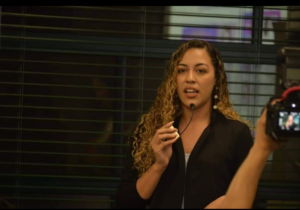 As for her leadership advocating for her community, when asked about her leadership style, Cuello first recalls her time working at McDonald’s, “Within the first year I was transitioned into the management position. I don’t necessarily think that I’m a bossy person, but I want to say that I am a good leader in the terms of the fact that I’ve been there and I’ve done this work and I don’t ask anybody to do anything that I wouldn’t expect myself.”
As for her leadership advocating for her community, when asked about her leadership style, Cuello first recalls her time working at McDonald’s, “Within the first year I was transitioned into the management position. I don’t necessarily think that I’m a bossy person, but I want to say that I am a good leader in the terms of the fact that I’ve been there and I’ve done this work and I don’t ask anybody to do anything that I wouldn’t expect myself.”
She also brings up the importance of transparency with staff and within the organization, “I maintain the highest regard for full transparency and communication. It’s the only way that this is going to work even amongst us. Our communication is that we remain a hundred percent transparent.”
An example of that transparency is helping ensure staff is set up for long-term success in their careers while working at a small non-profit, “ A lot of the funding that we received throughout the pandemic has been COVID response money” She says, “So even though it supports a lot of our staff as well, they realize that some of the funding is very short term.”
“So whenever we hire staff on, we say, ‘yes, we’re going to make sure that this is how you arrive, but we’re going to make sure that with the training you receive while you’re here, you’ll be able to take that and implement it somewhere else if funding gets cut off.”
Whether they will eventually move on or not, it’s clear NC FIELD’s staff is dedicated to their work, “The current staff do not make enough for the work that they do. I don’t pay them enough.” Cuello admits, “But they also realize that with the experience they have, they can go somewhere else and make more money. And yet they choose to continue to stay with us.”
Cuello also feels that her experience and background have had a big impact on her leadership. In many ways, it’s a benefit to her work, especially in the sense that, “People are more likely to open the door to me if I look like them.”
However, she has experienced difficulties even within her own community, “I have gotten the feedback of, ‘Yesenia, you’re from the United States. You don’t know what it’s like [to be undocumented].”
“To be honest, that one sometimes ticks a nerve. I become extremely defensive, but that’s because they don’t realize that even though I am documented, I did grow up within an undocumented background.”
While many people assume that having a child who is a US citizen provides citizenship to the parent as well, that is not the case. Over 4 million American children live with at least one parent who is undocumented.
“It had a huge, huge impact.” Cuello says of her own experience, “I remember that growing up, one of the first things that I kept from people was where my mother was from. Through school, you ask questions like, ‘oh, why doesn’t my mom go on field trips with me?’ ‘Why can’t I do sports?’”
Both parents who are undocumented and their children often have worries that most of us wouldn’t even consider. “If you don’t feel good, you hop in the car and you go to the doctor. If you need to buy food for your family, you hop in the car and go to the grocery store,” explains Cuello. But it wasn’t the same for her, and isn’t for many in her community, “For us, you know, if my mom would hop in a car and leave, the possibility that she wouldn’t return was always very present.”
Studies have found having an undocumented parent has significant psychological effects on children. Just like Cuello described, these children face fears of losing their parent to deportation or have the responsibility of hiding their family member’s legal status. They, unsurprisingly, face higher rates of anxiety, depression, fear, attention problems, and rule-breaking behavior than children whose parents are not undocumented.
Still, Cuello allows her experiences to be a learning opportunity. “I made some very interesting friends, in terms of politics and how people think,” she says, “ After I share, and we can have adult, mature conversations, I let them know my mom is ‘undocumented’ – because people oftentimes use the word ‘illegal’ – and now that you know me, how can you look at me and tell me I don’t belong?”
“That is my way of helping people understand that we’re human, and we belong, and we deserve to be able to live long healthy lives.”
To organizations and individuals advocating for the farmworker community, Cuello shares an important piece of advice, “In all of my experience within this field, I’ve learned to definitely celebrate every win.”
“Realize that we’re not out there alone. We are a community and we are making a change in it. I’m very hopeful that with what attention this community has been able to garner within the last few years, we’ll be able to continue to push on this movement for positive change.”
And, of course, her passion for her community will inform Cuello’s future work,
“I am very much not only embedded in the community but a part of the community that I support,” she says, “Being able to see that direct impact and realizing that this is something great that we’re doing here, and wanting to see that forward is what has kept me with NC FIELD for as long as it has.”
“And if I can do anything to better the lives of my community and my neighbors and my family, then that’s what I’m going to continue to do.”
To learn more the work of NC FIELD visit: https://www.ncfield.org/
